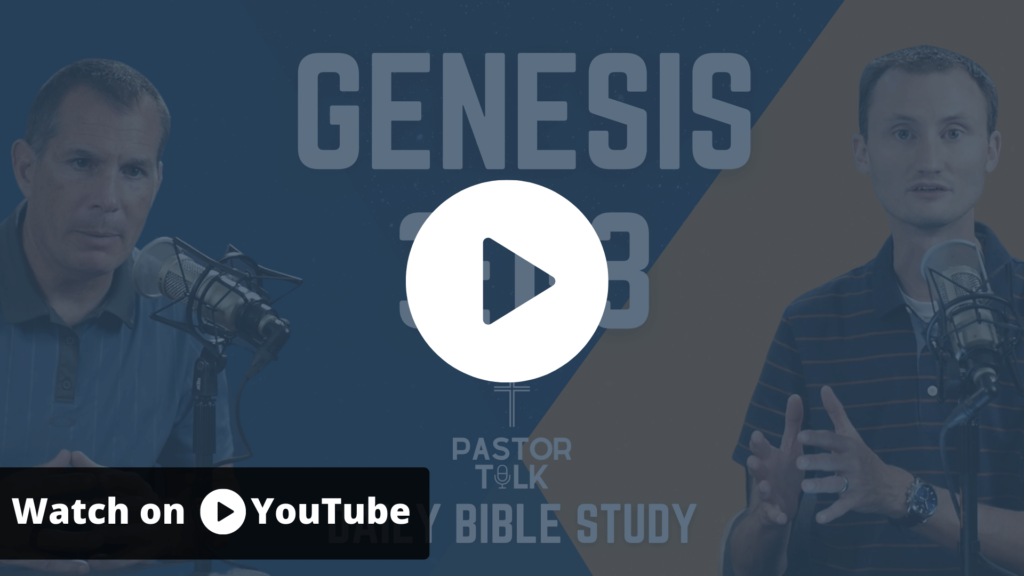
/
RSS Feed
God’s creates an entire world and two humans within it and then we learn about the “crafty serpent.” What starts as a simple question quickly leads to world changing results. Today, Pastors Clint and Michael discuss what this has to teach us about our own hearts and how we too can be tempted towards questioning the very God who made us.
Be sure to share this with anyone who you think might be interested in going along on this journey together through Genesis together.

Pastor Talk Quick Links:
- Learn more about the Pastor Talk series and view our previous studies at https://pastortalk.co
- Subscribe to get the Pastor Talk episodes via podcast, email and much more! https://pastortalk.co#subscribe
- Questions or ideas? Connect with us! https://pastortalk.co#connect
- Interested in joining us for worship on Sunday at 8:50am? Join us at https://fpcspiritlake.org/stream
